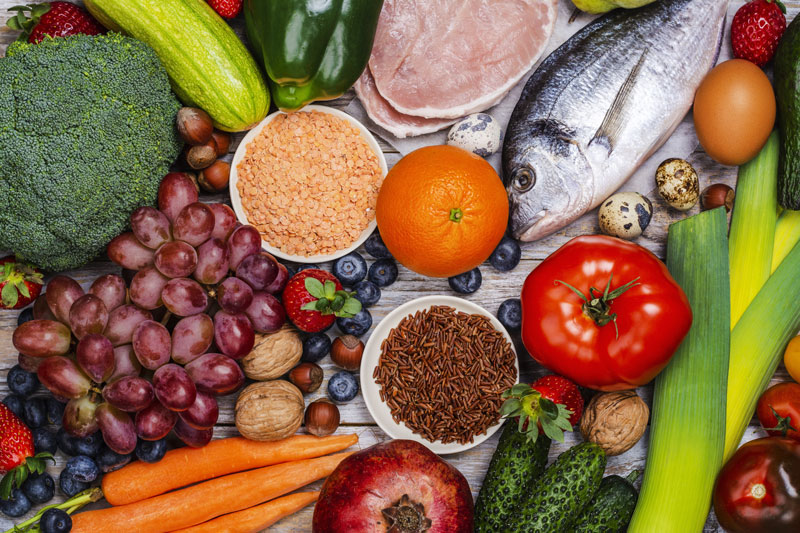
At the moment, obesity treatment is mostly focused on surgery or pharmaceutical therapy. There are many other options. In some cases, individuals suffering from obesity can benefit from education and support. Girls Make Your Move campaign is an example of a campaign that aims to inspire young women to exercise more.
Obesity is a complicated issue. It is a multi-cause condition that can be affected by genetic, environmental, and psychological factors. In addition, obesity is often accompanied by negative health effects that can impact the quality of life of individuals. It's a serious health issue that comes with high costs for the health care system. The health costs associated with obesity account for between 2-7 percent of all medical spending in developed countries. The global economic cost of obesity is $2.0 trillion. Globally, obesity causes a death rate of 2.8 millions people every year.

Aside from the negative effect it has on an individual's body, obesity can also negatively impact his or her economic and social lives. Obesity may increase your risk of developing serious health complications like diabetes, heart disease, or cancer. In addition, obese individuals often face pervasive weight discrimination. These people are often viewed as lazy, gluttonous, or lack self-discipline. These stereotypes can impact access to treatment for obesity and the availability of services.
It is a multidisciplinary problem that requires coordination among health professionals. But, a lack in education and training can slow down obesity treatment. To better treat patients' weight management needs, health care professionals should receive more education and training. Health care professionals should be encouraged encourage to have better conversations about weight management with patients. This will improve the quality of patient care for obese patients.
Stigmatization and weight discrimination can also impact the way that obesity is treated. Promoting efforts to eradicate weight bias is crucial. This can include educational programs that discourage weight stigma and stereotypes. Also, media reporting can play a significant role in the education of the general public about obesity. It can also be used to help people who are obese get the treatment they need.
The treatment of obesity is a long-term challenge. It is critical to develop a systemic array of initiatives that improve outcomes across the socioeconomic spectrum. It is also important to focus on prevention of childhood obesity. Children with obesity are more likely to remain obese throughout their lives. They are also at greater risk of developing type 2 diabetes, and cardiovascular disease. In school, obese students are also subject to weight-based bullying.

The treatment of obesity requires a new public narrative. It must be in line with the current scientific knowledge. It must also address the negative social and cultural consequences of weight stigma. It will require the concerted efforts and participation of many stakeholders to alter the public narrative.
FAQ
What are the 10 most delicious foods?
The following are the 10 best foods to consume:
-
Avocados
-
Berries
-
Broccoli
-
Cauliflower
-
Eggs
-
Fish
-
Grains
-
Nuts
-
Oats
-
Salmon
How can I tell what is good for me?
Listening to your body is essential. When it comes to your body's needs for exercise, food, or rest, it is the best. Your body will tell you what to do so that you don't go overboard. Be aware of your body and do what you can to keep it healthy.
What lifestyle is most healthy?
Healthy lifestyles include eating healthy food, regular exercise, good sleep, and avoiding stress. You will live a long and happy life if you adhere to these guidelines.
Start small by changing your diet and exercising routine. To lose weight, you can start walking 30 minutes per day. If you're looking for a way to increase your activity, consider taking up swimming or dancing. An online fitness program, such as Strava and Fitbit, can help you track your activity.
What should my diet consist of?
Take in lots of fruits and veggies. They contain vitamins and minerals which help keep your immune system strong. Fruits and veggies are also high in fiber, which makes them filling and helps with digestion. You should eat at least five servings per day of fruits and vegetables.
Drink plenty of water. Water helps flush toxins out of your body and makes you feel fuller between meals. Drink about eight glasses each day.
Choose whole grains over refined ones. Whole grains are rich in nutrients such as iron, zinc and magnesium. Refined grains lack some nutrition.
Avoid sugary drinks. Sugary drinks have empty calories and are a major contributor to obesity. Instead, you can opt for water or milk, as well as unsweetened herbal teas.
Avoid fast food. Fast food has little nutritional value. It may taste great but it won't give you the energy you need to function properly. Avoid soups, sandwiches and other unhealthy options.
Try to limit alcohol intake. You should limit your alcohol intake as it contains empty calories and can lead to poor nutrition. Limit your consumption to no more then two alcoholic beverages per week.
Reduce your consumption of red meat. Red meats have high levels of cholesterol and saturated fat. Instead, choose lean cuts of beef and pork, lamb, chicken or fish.
Is cold a sign of a weak immune response?
Cold can make you less immune to infection because your body makes fewer white blood cells, which are essential for fighting infections. You will feel less pain if you are cold.
What can you do for your immune system to improve?
There are trillions of cells in the human body. Each cell works together to create organs and tissues that fulfill specific functions. When one cell dies, another cell replaces it. Cells communicate with one another using chemical signals called hormonal hormones. Hormones control all bodily functions, including growth, development, metabolism, immunity and immune system.
Hormones are chemicals secreted by glands throughout the body. They travel through the blood stream and act like messengers to control how our bodies function. Some hormones can be produced within the body while others can be made outside.
Hormone production begins when a hormone-producing gland releases its contents into the bloodstream. Once hormones are released they move through the bloodstream until reaching their target organ. Some hormones are only active for a brief time. Some hormones last longer and influence the body's functionality even after leaving the bloodstream.
Some hormones are produced in large quantities. Some hormones can be produced in large amounts.
Some hormones are made at specific times in your life. Estrogen, for example, is produced in puberty as well during pregnancy, menopause, old age, and after menopause. Estrogen aids women in developing breasts, maintaining bone density and preventing osteoporosis. It helps to stimulate hair growth and maintains skin's softness.
Statistics
- WHO recommends consuming less than 5% of total energy intake for additional health benefits. (who.int)
- WHO recommends reducing saturated fats to less than 10% of total energy intake; reducing trans-fats to less than 1% of total energy intake; and replacing both saturated fats and trans-fats to unsaturated fats. (who.int)
- This article received 11 testimonials and 86% of readers who voted found it helpful, earning it our reader-approved status. (wikihow.com)
- The Dietary Guidelines for Americans recommend keeping added sugar intake below 10% of your daily calorie intake, while the World Health Organization recommends slashing added sugars to 5% or less of your daily calories for optimal health (59Trusted (healthline.com)
External Links
How To
27 steps to a healthy lifestyle if your family only eats junk food
Cooking at your home is one of the easiest ways to eat healthier. It can be difficult to prepare healthy meals at home. This article will provide some helpful tips for making healthier dining out choices.
-
Find restaurants that offer healthy options.
-
Order salads and vegetables before ordering any meat dishes.
-
Ask for sauces made without sugar.
-
Avoid fried items
-
Grilled meats are better than fried.
-
Do not order dessert unless you really need it.
-
You must ensure that you have something more to eat after your dinner.
-
Slowly chew and eat.
-
Get plenty of water when you eat.
-
You should not skip breakfast or lunch.
-
Every meal should include fruit and vegetables.
-
Consider drinking milk instead of soda.
-
Try to stay away from sugary drinks.
-
Reduce salt intake.
-
Limit the amount of time you eat at fast food restaurants.
-
Ask someone to join you if you cannot resist temptation.
-
Do not let your kids watch too much TV.
-
Keep the television off during meals.
-
Drink no energy drinks
-
Regular breaks from work are important.
-
Get up early and go for a run.
-
Every day, exercise.
-
Start small and progress slowly.
-
Set realistic goals.
-
Be patient.
-
Exercise even if it's not your favorite thing to do.
-
Use positive thinking.